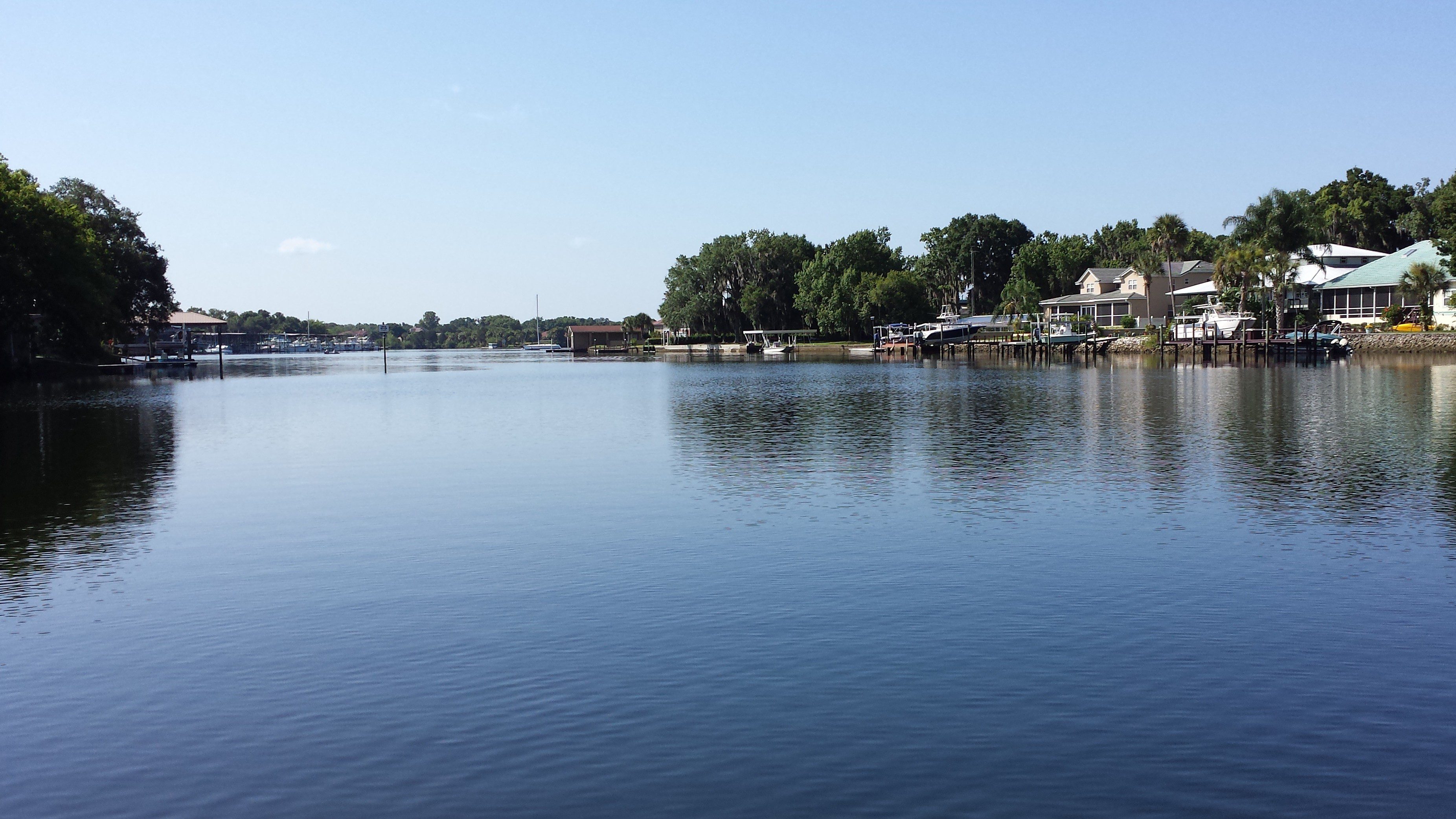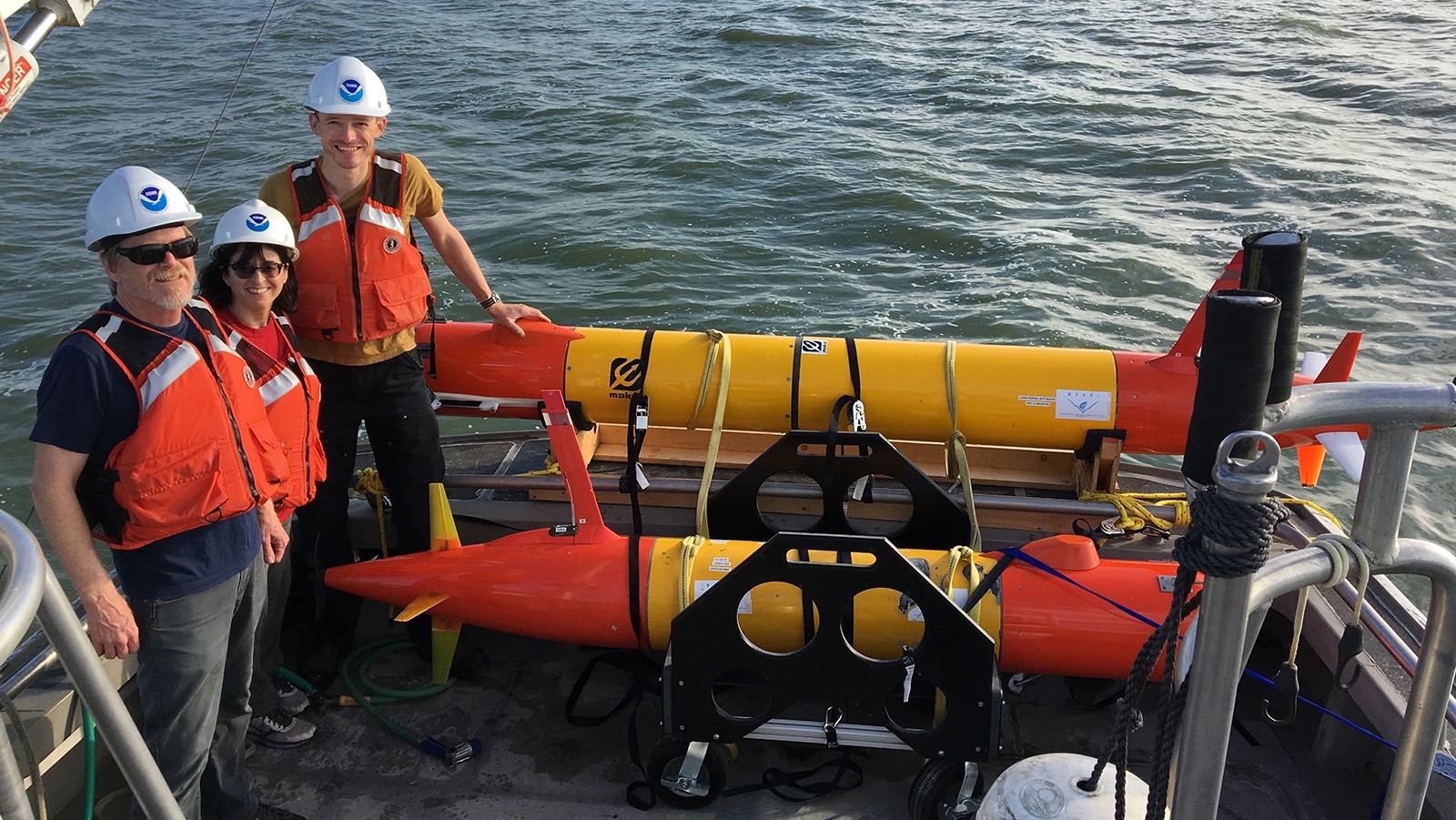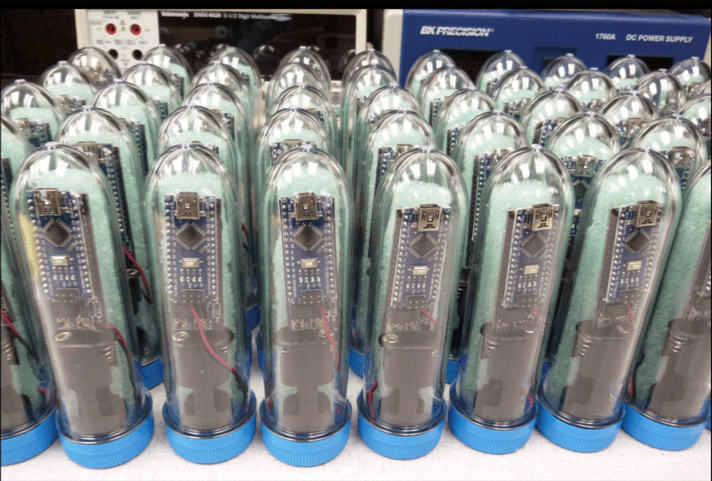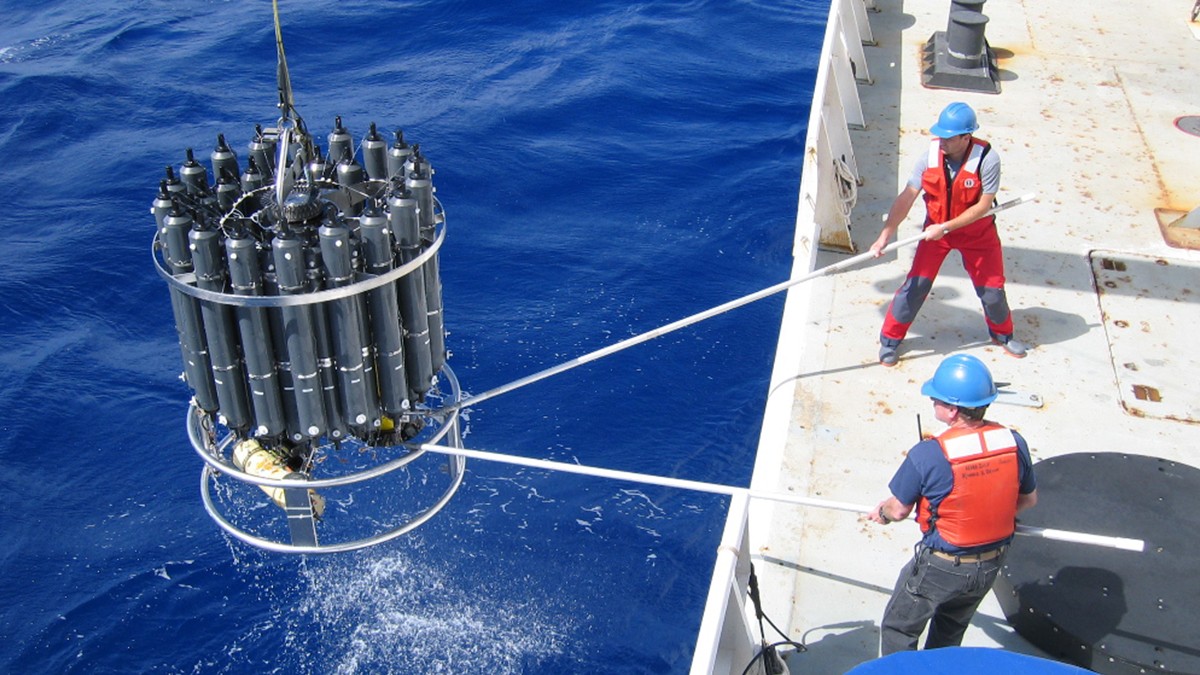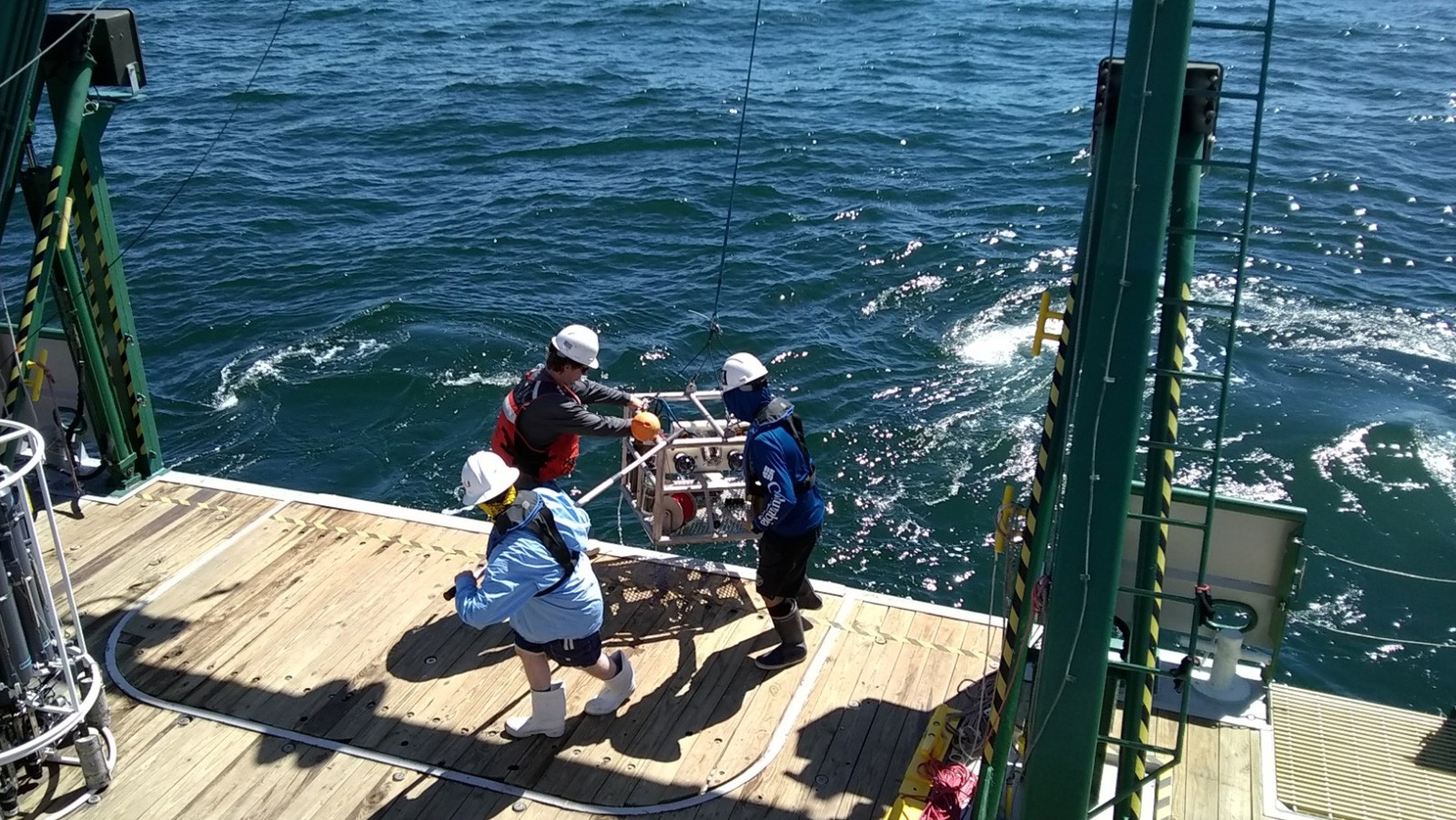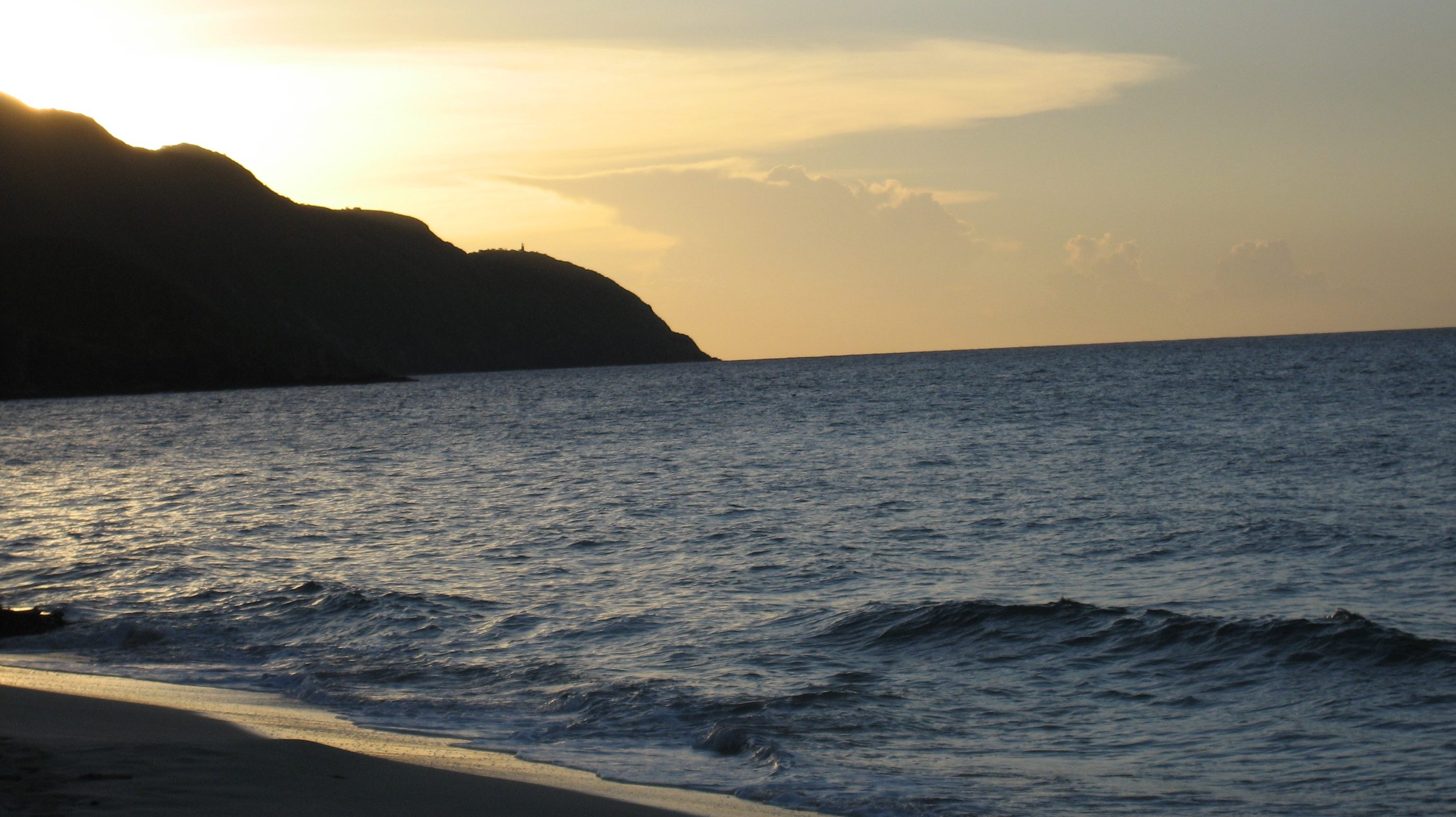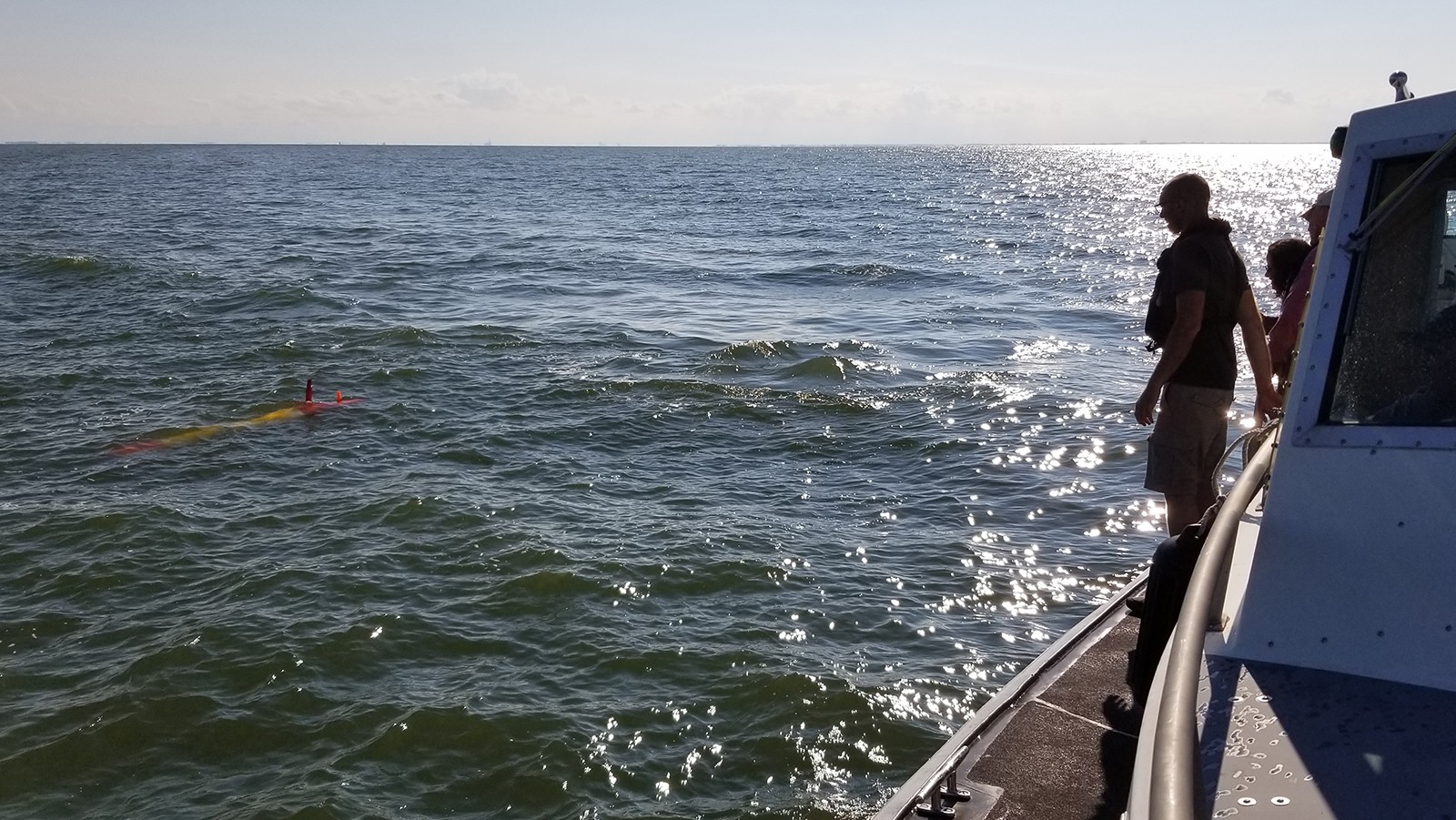An analysis of 20 years of water quality data shows that Biscayne Bay, a NOAA Habitat Focus Area off southeast Florida, is degrading, as scientists have identified early warning signs that could help inform managers to prevent a regime shift of the bay’s ecosystem.In a recent study published in Estuaries and Coasts, scientists from NOAA and partner organizations detected an increasing trend in chlorophyll and nutrient levels from 48 monitoring stations throughout Biscayne Bay.
Read Full Article
Scientists from NOAA and the Monterey Bay Research Institute (MBARI) are teaming up on June 3-4, 2019 to conduct a complex mission which will integrate acoustic measurements and autonomous sample collection for analysis of environmental DNA (eDNA). Through these efforts NOAA scientists hope to develop faster and cheaper ecosystem assessment methods, ensure sustainable fisheries and broaden our understanding of life in the oceans.
Read Full Article
NOAA and partners have launched a new buoy in Fagatele Bay within NOAA’s National Marine Sanctuary of American Samoa to measure the amount of carbon dioxide in the waters around a vibrant tropical coral reef ecosystem. “This new monitoring effort in a remote area of the Pacific Ocean will not only advance our understanding of changing ocean chemistry in this valuable and vibrant coral ecosystem but will also help us communicate these changes to diverse stakeholders in the Pacific Islands and across the United States,” said Derek Manzello, coral ecologist with NOAA’s Atlantic Oceanographic and Meteorological Laboratory.
Read Full Article
Researchers with AOML’s Ocean Chemistry and Ecosystems Division have entered into a collaborative agreement with Reef Check Foundation to deploy an AOML-designed temperature sensor at coral reef sites around the world. Measuring only six inches in height, the inexpensive, highly-accurate sensors will greatly enhance efforts to more precisely monitor small-scale temperature fluctuations that occur at reefs over time and at various depths.
Read Full Article
AOML researchers have taken an innovative approach to studying the changing carbonate chemistry of seawater at shallow coral reef sites. Using 3D printing technology made possible by the new Advanced Manufacturing and Design Lab at AOML, researchers with the Acidification, Climate, and Coral Reef Ecosystems Team, or ACCRETE, have created a water sampler in-house.
Read Full Article
The new research published by NOAA and international partners in Science finds as carbon dioxide emissions have increased in the atmosphere, the ocean has absorbed a greater volume of emissions. Though the volume of carbon dioxide going into the ocean is increasing, the percentage of emissions — about 31 percent — absorbed by it has remained relatively stable when compared to the first survey of carbon in the global ocean published in 2004.
Read Full Article
AOML recently led a multi-agency (NOAA/AOML, NOAA/SEFSC, State of Florida Fish and Wildlife Research Institute, Florida Fish and Wildlife Commission, NOAA/NESDIS, University of South Florida, MOTE Marine Laboratory and Aquarium, and University of Miami) research cruise to study the effects of Southwest Florida’s ongoing red tide. To address such a complex problem as red tide, the cruise brought together a diverse team of experts consisting of commercial fishermen, oceanographers, systems ecologist, phytoplankton ecologist, and fish population biologist. This cruise allowed researchers to take a holistic approach to characterize the extent of the red tide and its impacts. The goal of the cruise was to understand why these blooms happen to better inform effective future response measures and hopefully improve Florida’s resilience to these coastal events.
Read Full Article
Ocean Chemistry & Ecosystems The Ocean Chemistry and Ecosystems Division supports NOAA's mission to understand our oceans and coasts, aid conservation and management of marine ecosystems, and predict changes to these valuable resources. We work on a variety of research topics including the global rise of carbon dioxide, the ability of our ecosystems to support [...]
Read Full Article
Few accessible places represent Earth’s natural beauty quite like our beaches, but looks can be deceiving if there is a bacterial outbreak or contamination from offshore activities. Not being able to see these contaminants puts families at risk of exposure if they aren’t properly warned. The BEACHES project (Beach Exposure And Child Health Study), a collaboration between the University of Miami’s College of Engineering and the Cooperative Institute for Marine and Atmospheric Studies and AOML, along with the Universities of Arkansas and Texas, aims to pair child behavioral science with microbiology to address exposure risk of beachgoers.
Read Full Article
In a collaborative effort between NOAA, the Cooperative Institute for Great Lakes Research, and the Monterey Bay Aquarium Research Institute, research merging robotics with biochemistry will give us a detailed, three-dimensional picture of harmful algal blooms in Lake Erie in near real-time and take water samples for genomic analysis. The end goal is a Harmful Algal Bloom forecast to help managers make decisions about environmental health and public safety pertaining to the lake. AOML’s own Dr. Kelly Goodwin is participating in the project to help with instrument and sample recovery.
Read Full Article
